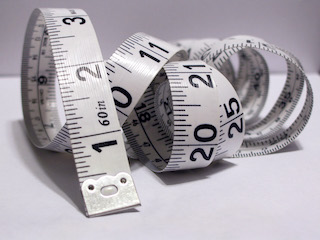Eat Good Foods During Your Pregnancy
Pregnancy is a beautiful journey, but it also comes with unique nutritional needs. Eating a balanced diet rich in essential nutrients is crucial for the health of both the mother and the developing baby. Understanding which foods are beneficial can help ensure a healthy pregnancy. This guide explores the good foods to incorporate into your diet, offering insights into their nutritional benefits and practical tips for meal planning.
Good food for nutritional needs
During pregnancy, a woman’s body undergoes significant changes, requiring increased levels of certain nutrients and good foods to support foetal development. Key nutrients include folate, iron, calcium, protein, omega-3 fatty acids, and vitamins A, C, D, and E. Meeting these nutritional needs can help reduce the risk of complications and promote the health of both mother and baby.
Importance of a balanced diet
A balanced diet during pregnancy not only supports the growing fetus but also helps maintain the mother’s health and energy levels. A variety of foods from all food groups is essential to ensure adequate intake of macronutrients and micronutrients. This includes whole grains, lean proteins, healthy fats, fruits, and vegetables. By focusing on good foods, you can create a nutrient-dense diet that provides the energy and nutrients necessary for a healthy pregnancy.
Nutrient-rich choices
Here are some of the best food categories to include in your pregnancy diet, along with specific examples and their health benefits.
1) Leafy greens: Leafy greens are powerhouse foods packed with essential nutrients. They are high in vitamins A, C, K, and several B vitamins, including folate, which is crucial for foetal development.
Good choices: Spinach, kale, Swiss chard, and collard greens.
Benefits
-
-
- Folate: Helps prevent neural tube defects.
- Iron: Supports increased blood volume and helps prevent anaemia.
- Calcium: Important for developing bones and teeth.
-
2) Whole grains: Whole grains are excellent sources of complex carbohydrates, fibre, and essential nutrients. They provide sustained energy, which is vital during pregnancy.
Good choices: Quinoa, brown rice, whole grain bread, and oats.
Benefits
-
-
- Fibre: Helps alleviate constipation, a common issue during pregnancy.
- B vitamins: Support energy metabolism and help in the development of the baby’s brain.
-
3) Lean proteins: Protein is essential for the growth and development of foetal tissues, including the brain. It also supports the mother’s increased blood volume and tissue repair.
Good choices: Chicken, turkey, fish, beans, lentils, tofu, and eggs.
Benefits
-
-
- Amino acids: Building blocks for the baby’s growth.
- Iron and zinc: Essential for immune function and development.
-
4) Healthy fats: Incorporating healthy fats into your diet is vital for the baby’s brain development. Omega-3 fatty acids, in particular, are important for cognitive function.
Good choices: Avocados, nuts, seeds, olive oil, and fatty fish
Benefits
-
-
- Omega-3 fatty acids: Support brain development and can reduce the risk of preterm birth.
- Vitamin E: Acts as an antioxidant and supports healthy skin.
-
5) Dairy products: Dairy products are rich in calcium, protein, and essential vitamins. They are crucial for developing the baby’s bones and teeth.
Good choices: Yogurt, milk, cheese, and fortified plant-based alternatives.
Benefits
-
-
- Calcium: Necessary for bone health.
- Probiotics: Promote digestive health and can help prevent pregnancy-related constipation.
-
6) Fruits: Fruits are excellent sources of vitamins, minerals, and fibre. They can also satisfy sweet cravings in a healthy way.
Good choices: Berries, bananas, oranges, apples, and avocados.
Benefits
-
-
- Vitamin C: Supports immune function and helps with iron absorption.
- Fibre: Aids digestion and helps prevent constipation.
-
7) Legumes: Legumes are rich in protein, fibre, and essential nutrients, making them an excellent addition to a pregnancy diet.
Good choices: Lentils, chickpeas, black beans, and kidney beans.
Benefits
-
-
- Folate: Supports healthy foetal development.
- Iron: Helps prevent anaemia, especially in vegetarian and vegan diets.
-
8) Nuts and seeds: Nuts and seeds are nutrient-dense foods that provide healthy fats, protein, and various vitamins and minerals.
Good choices: Almonds, walnuts, chia seeds, and flaxseeds.
Benefits
-
-
- Healthy fats: Support brain development.
- Magnesium: Important for muscle function and can help reduce leg cramps.
-
9) Fish and seafood: Certain types of fish are rich in omega-3 fatty acids and essential nutrients but should be chosen carefully to avoid excessive mercury exposure.
Good choices: Salmon, sardines, and trout.
Benefits
-
-
- DHA: An omega-3 fatty acid crucial for fetal brain development.
- Protein: Supports growth and development.
-
Foods to limit or avoid
While there are many good foods to include in your diet during pregnancy, there are also some foods and substances to limit or avoid altogether to ensure the health and safety of both mother and baby.
1) Processed foods: Processed foods often contain added sugars, unhealthy fats, and preservatives, which can lead to excessive weight gain and nutritional deficiencies.
2) High-mercury fish: Certain fish can contain high levels of mercury, which can be harmful to foetal development. Avoid fish such as shark, swordfish, king mackerel, and tilefish.
3) Raw or undercooked meat and eggs: Consuming raw or undercooked meats and eggs can increase the risk of food borne illnesses, which can be dangerous during pregnancy.
4) Caffeine and alcohol: Excessive caffeine and alcohol consumption during pregnancy can lead to developmental issues and complications. It is advisable to limit caffeine intake to about 200 mg per day and avoid alcohol entirely.
Meal planning tips for a healthy pregnancy
Navigating the dietary needs of pregnancy can be challenging, but with careful planning, it becomes manageable. Here are some practical tips for meal planning:
1) Create a balanced plate: Aim for a balanced plate at each meal, including lean proteins, healthy fats, whole grains, and plenty of fruits and vegetables. This helps ensure you’re getting a variety of nutrients.
2) Prepare healthy snacks: Healthy snacks can help manage hunger between meals and provide additional nutrients. Consider options like yogurt with fruit, nuts, or whole-grain crackers with hummus.
3) Stay hydrated: Drinking plenty of water is crucial during pregnancy. Proper hydration supports overall health and can help alleviate common issues like swelling and constipation.
4) Involve your partner: Encouraging your partner to join you in preparing healthy meals can create a supportive environment and make healthy eating a shared goal.
5) Consult a professional: If you have specific dietary concerns or restrictions, consider consulting a registered dietitian or healthcare provider. They can help create a personalised meal plan that meets your unique nutritional needs.
Mother and baby food
Eating good foods during pregnancy is essential for the health and well-being of both the mother and baby. By focusing on nutrient-dense options, such as leafy greens, whole grains, lean proteins, healthy fats, fruits, and dairy products, you can create a balanced diet that supports fetal development and promotes maternal health.
By understanding the importance of nutrition and making informed food choices, you can navigate the challenges of pregnancy with confidence. Remember, this journey is not just about nourishing your body but also laying the foundation for your baby’s health and development. Embrace this opportunity to cultivate healthy eating habits that will benefit you and your family for years to come.



